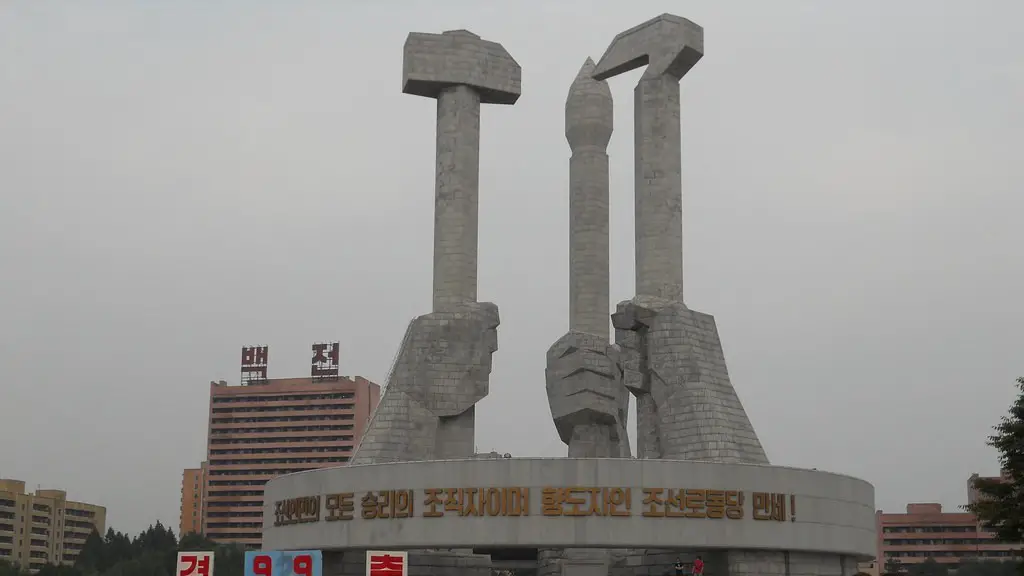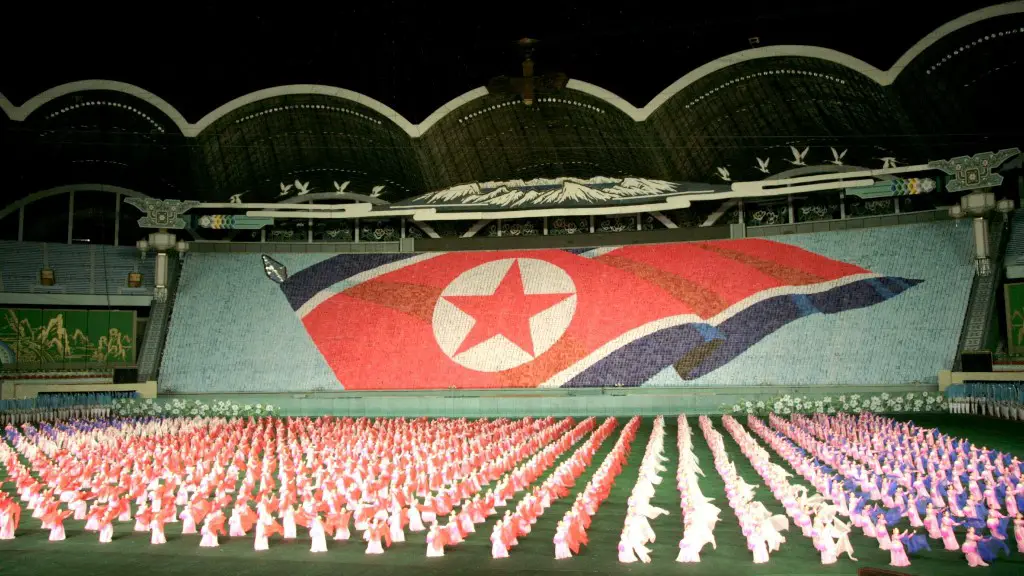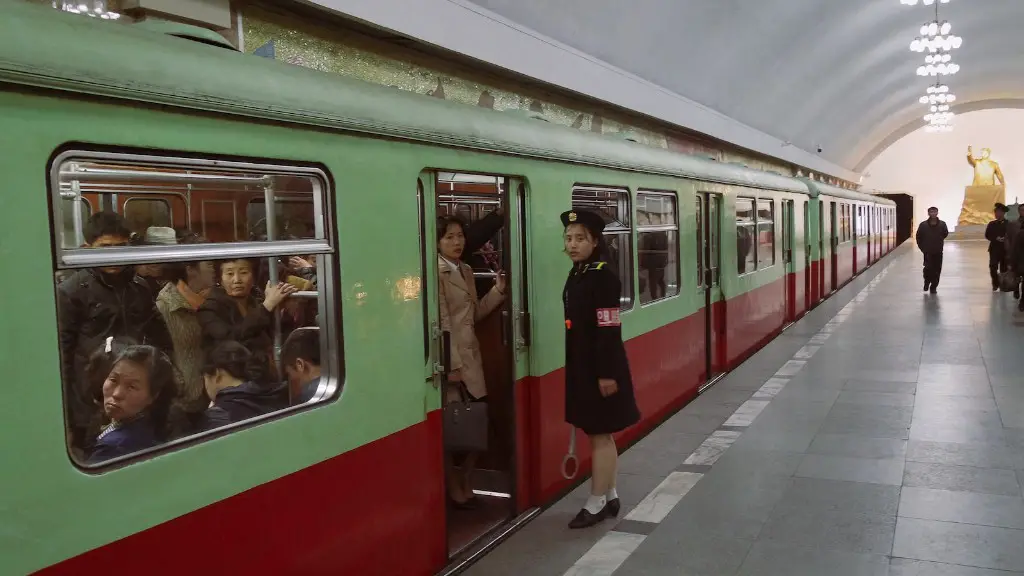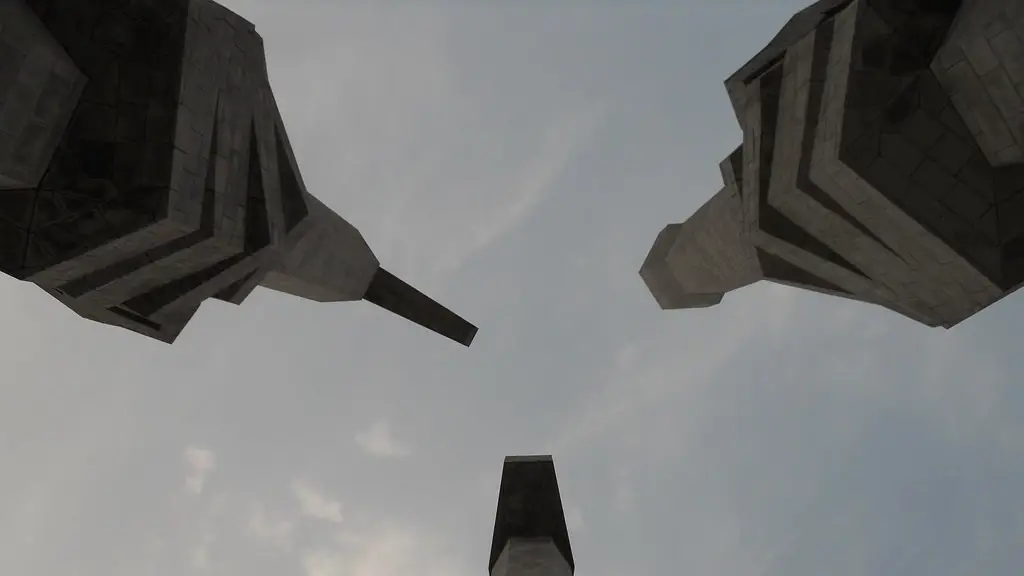As one of the most isolated countries in the world, North Korea has come to characterize a unique set of challenges and consequences for both East Asia and the international community. With its secretive regime, military-focused economic development, concentration camps, and nuclear ambition, North Korea can often feel as though it exists in another world. Despite inheriting a legacy of foreign occupation, civil war, and ideological divergence, this small and reclusive nation is rarely able to reconcile its differences in order to improve the quality of life and human rights of its citizens. So why is North Korea so messed up?
The first answer to this question lies in the damage done to the country during the Korean War. After 35 years of Japanese occupation ended in 1945, the Soviet Union and the United States divided Korea into two separate states, each of which had its own government. After three years of civil war, the Korean armistice agreement was signed in 1953, establishing the Demilitarized Zone (DMZ) and separating the two sides. This six-month-long conflict caused enormous death and destruction to North Korea, leading to the deaths of millions of people. The economic losses for the North at this time, therefore, were immense and the US blockade on the country ensured that it was unable to recover fully after the war.
Furthermore, the rule of Kim Il-sung, the founder of North Korea, sealed the country’s future isolation and authoritarianism. After coming to power in 1948, Kim adopted a policy of total mobilization, where all aspects of life – from the economy to politics to religion – were controlled and manipulated by his dictatorship. He also heavily militarized the North Korean state, creating an atmosphere of suspicion and fear in which dissent was not tolerated. This has continued in the decades since his death and remains a key reason for why North Korea is so messed up today.
Bringing it up-to-date, the reign of Kim Jong-un and his orchestrations have only increased the pariah status of the North as well as caused serious international apprehension and misunderstanding. Kim took office in 2011 and immediately began a process of further militarization, notably in the development of a nuclear arsenal. This brought further international scrutiny and pressure to the North, further exacerbating mistrust and risk. In addition, the country’s economy is still struggling, strained by the burden of military spending and lack of access to foreign markets. This slow-burn crisis has been borne out by the poverty levels and lack of basic services, such as healthcare, that continue to be prevalent in the North.
Experts suggest that one of the key reasons why North Korea is so messed up is the lack of willingness to try and tackle the underlying complexities that have arisen from its long and turbulent history. With so much at stake and both sides unwilling to compromise, the situation has remained mostly stagnant for much of the past century. This has resulted in a ‘freeze effect’, where all the issues that have been around for decades simply keep repeating themselves in an endless and deepening cycle. It is only when we come to look at the wider international picture and are willing to explore avenues for reconciliation and negotiation that a way out of this impasse can be found.
Ultimately, the answer to ‘Why is North Korea so messed up?’ lies in its history, the DPRK’s authoritarian rule, and its lack of willingness to compromise. This has resulted in a lot of suffering and hardship, both internally and externally, embedded in a deep sense of distrust. While it may be possible to find a way out of this situation, this will require dedication, courage, and a willingness to explore mutual understanding and peace. Only then can North Korea begin to free itself from the shackles of its past and start to provide a better future for its people.
Economic Challenges of North Korea
North Korea’s economic system is state-controlled and based on an amalgamation of the Soviet-style command economy and the Chinese market economy. However, like many other countries in the region, the North Korea economy has been struggling due to long-term international sanctions and the burden of military spending. This has led to economic hardship, widespread food insecurity, and a lack of access to much-needed resources for its citizens. In addition to this, the use of tax collection and forced labor also contribute to the country’s economic woes.
According to the United Nations, North Korea has among the world’s lowest per capita income at an estimated $1,800 a year. This equates to around $3.50 a day, making it one of the poorest countries on the planet, with nearly half of North Koreans classed as food insecure and in need of emergency aid. Despite attempts to promote economic development and self-sufficiency, such as the introduction of Special Economic Zones in 2013, the North Korean economy remains fragile and is highly susceptible to external factors and global markets.
As a result, the population is facing extreme levels of poverty and deprivation. This is exacerbated by the lack of access to basic services, such as healthcare and education, as well as the government’s propensity to prioritize the military over basic needs and economic development. For example, military spending is believed to account for a quarter of the North’s total spending, with the majority of resources diverted away from the civilian populous. This stark disparity in access to social services and living standards is one of the key reasons why North Korea is so messed up.
Political Challenges of North Korea
North Korea is an authoritarian state led by the Kim family, with one-man rule maintained through a system of strict military-style control and a pervasive secret police. The North Korean government works to limit the flow of information and severely punish any perceived threats to its power. This leads to serious human rights violations, such as mass detention and torture, as well as a complete denial of freedom of expression and assembly.
Increasingly, this oppressive environment has had wide-reaching consequences for the North Korean people, leading to widespread poverty, famine, and a general atmosphere of fear and despair. In addition to this, the risk of being arrested for political or religious dissent is high, with punishments including execution and imprisonment in labor camps. Such oppressive practices are further reinforced by the use of public loyalty campaigns and control over the media and access to information, which serve to limit any possibility of social upheaval or opposition.
Moreover, North Korea’s international reputation has been tarnished by its consistent pursuit of nuclear weapons. This has caused serious tension between the North and its regional allies and the wider international community. The regime has been widely criticized for its aggressive stance on nuclear arms and the threat it poses to its neighbors and the rest of the world. This has led to sanctions, economic isolation, and further hardship for the people of North Korea.
In addition to the economic and political difficulties faced by North Korea, there are also numerous social challenges too. As a result of widespread poverty and the country’s oppressive political system, many North Koreans have been pushed to the fringes of society. This has led to an increase in child labor, child malnutrition, sex trafficking, and homelessness. Furthermore, due to a lack of access to modern technology and infrastructure, many North Koreans are unable to take advantage of the opportunities afforded by the global digital economy, actually increasing the digital divide in North Korea compared to other countries in the region.
Similarly, North Korea is lagging behind its neighbors in terms of social progress. This is largely due to the government’s reluctance to open up to international values and norms. For example, the North enforces a nationalistic education system which strictly controls and shapes the views of its citizens, while free speech and independent media remain highly restricted. This means that North Koreans are less likely to question the government or the wider societal structure, making it difficult for the people of North Korea to come together and make changes from within.
Humanitarian aid, however, can provide some hope for North Koreans by helping to address the underlying issues that lead to this type of social deprivation. For example, international aid organizations are increasingly working to provide access to basic healthcare, education, and food security for the North Korean people. By helping to alleviate some of the worst aspects of poverty, these organizations are helping to provide a better life for many in North Korea.
Cultural Challenges of North Korea
One of the biggest cultural challenges facing North Korea today is the lack of access to the internet. Citizens are blocked from connecting to the outside world and accessing global information, with censorship and surveillance tools used to monitor everything. This has led to an atmosphere of mistrust and a complete lack of awareness regarding the outside world. This has had a knock-on effect on the North’s culture, with citizens less likely to pursue knowledge or engage in activities that may not be approved by the government.
In addition, North Korean culture is heavily steeped in traditional Korean customs and ideology, making it difficult for the country and its citizens to embrace new ideas and technologies. For example, despite attempts to modernize the economy, North Korea remains largely reliant on coal as an energy source. This means that the majority of North Koreans live without access to modern energy sources such as electricity and running water, a situation that drastically limits opportunity and development.
In order for North Korea to break away from its isolation and open up to the world, it’s essential that citizens are given access to the wider global community. However, this is a slow process and requires a shift in cultural mindsets from both the government and the people. For example, in recent years, the North has started to use the internet more to access foreign media and spread its own message. This has been a slow but steady step forward, one that’s based on a recognition that North Korea need not be so cut off from the rest of the world.
International Community & North Korea
The international community has taken steps to alleviate tensions and initiate negotiations with North Korea. This has included the establishment of diplomatic missions in the North and the signing of a peace treaty in 2018. In addition, a number of multilateral economic and cultural exchanges have also been initiated by countries in East Asia. These initiatives have been aimed at improving communication and understanding between the two sides, as well as providing assistance to North Koreans.
However, this international pressure has also come at a cost. North Korea has responded to external pressure by increasing its militarization and weapons development, further straining relations with the international community. Moreover, the North’s nuclear ambitions have posed a serious threat to global security, resulting in economic sanctions and diplomatic isolation. This has had a direct impact on the livelihoods of North Koreans, with the country’s already fragile economy being pushed further into decline.
Despite these challenges, the international community remains hopeful that through communication and diplomacy, North Korea can eventually turn away from its current trajectory of confrontation and isolation. This will require a unified and cooperative approach from both sides and recognition of the need for mutual understanding. Only then will North Korea be able to fully break away from its isolation, close the gray zone between itself and the international order, and provide a better life for its suffering people.





